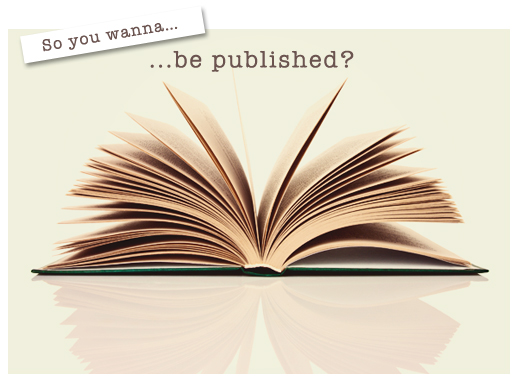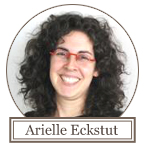{Writing} So you wanna…be published?
When you’re FOF, you’re in an ideal position to start writing a book–we’ve all got a lifetime of expertise in something and plenty of stories to share. But, where to begin? The jump from your computer screen to a bookstore shelf can feel insurmountable. Arielle Eckstut, literary agent and author of The Essential Guide to Getting Your Book Published, demystifies book publishing so you can turn your book into bucks, pronto!

Should I self-publish or use a publisher?
This depends on the access you have to your audience. You must assess your own abilities and resources to figure out the right match. I’ll give you two examples:
Let’s say you’re a realtor in Tennessee, writing a book about Tennessee real estate. You know where your audience is, you know how to reach them, and most likely a national publisher is not going to publish your book. You could go to a regional publisher but you’d probably get paid a very low advance. In this case I’d recommend you self-publish. You will make more per book because you don’t have an intermediary who takes some of the cut.
Now, let’s say you’re a realtor who is writing about getting a great deal on a house in this down economy — a national idea. You may have a great local reputation, but you are not known outside of your area. As a self-publisher, you’d have a hard time reaching the audience you want and getting the kind of distribution you need. I’d recommend pursuing a publisher in this situation.
If you decide to self publish what are your options?
You can create an e-book that you put up yourself on Amazon — you don’t have to pay for printing. You can “print on demand” one book at a time so you don’t have to pay for a large print run. Or, you can do a print run and then try to get your book into bookstores or sell them through a website.
What about “author service companies”?
There’s a whole group of companies like these popping up to help authors with self-publishing such as CreateSpace on Amazon, Lulu.com and Author House. They can get an ISBN number for your book, edit it and put together a marketing plan. But, it really adds up. You can spend $20,000 for a book that may only sell 100 copies.
Do you know anyone who has had great success self-publishing their book?
Lisa Genova wrote a book called Still Alice, about a woman with Alzheimer’s. She sent the book out to many agents — some didn’t respond and those that did said the topic was too depressing. She decided to self-publish. She reached out to Alzheimer’s organizations about her book. She became a guest blogger for one, a speaker for another. Her book became a bestseller and she ended up getting an offer from Simon and Schuster for over a million dollars.
If you do decide to go the publishing house route…how many rejections should you expect?
You need to expect rejection, period. There are people who have received over a hundred rejections but gone on to great success.
Does having a successful blog or social media page increase the chances of being picked up by a major publisher?
One of the first thing an agent or a publisher is going to do when they get your manuscript or proposal is look at your social media activity. Whether it matters, depends on your audience. If your readers are primarily 70-year-old women, having a popular Twitter feed for your book might not be as important as a Facebook page. If you are writing a sci-fi novel and don’t have a Twitter feed, that’s going to concern a publisher.
Do you need a manuscript or can you sell an idea?
It depends what you are writing. If you are writing fiction, you need a complete manuscript. If you’ve written a memoir or narrative non-fiction, these days publishers expect a manuscript. If you are writing practical non-fiction you only need a book proposal.
Do you have to know someone “inside” to get a publisher to look at your work?
You can’t just send it blind. After 9/11 they don’t open packages unless they know who they are coming from. You either need to know someone at the publishing company or send it through an agent.
So…what’s the secret to getting picked up by a big publisher?
I think there are four principles to getting published:
Researching: Every day I get dozens of queries and 95% are for the type of books I don’t represent. Those go in the trash. Whether you are looking for an agent to find out who is appropriate, assessing your competition or what other authors are doing online that you could be doing too….you need to research!
Networking: If you know someone, it makes a huge difference. You never know who is going to be the person who can help. Lisa Genova had an acquaintance in a weird part of Simon and Schuster, she wrote them, told them she was selling all these books and having enormous success, and that’s how she got her deal.
Writing: Many people have great ideas but they don’t sit down and actually write them. Sometimes the thing you are writing isn’t what will actually get published. But, if you keep writing about the things you care about, you’ll have more of a chance. We have a friend, Tamim Ansary, who had been writing for years about his childhood in Afghanistan. His agent had no success getting a memoir published. Then, 9/11 happened — his agent said, “You know that stuff you’ve been writing all these years? Get me something right now and I’ll be able to sell it within two hours.” His book, West of Kabul, East of New York, has sold hundreds of thousands of copies and he was on Oprah.
Perseverance: Every writer encounters rejection. Some people give up too quickly. Other people can last long but not long enough. The people that say “I’m going to do this no matter what,” are the ones who will have success. The one caveat is there’s “smart perseverance” and “stupid perseverance.” If you just send out the same thing over and over without changing it. Anytime you get any criticism about your work, you need to reassess it and change it up.
 —
—
Arielle Eckstut is a literary agent-at-large for Levine Greenberg, co-author of The Essential Guide to Getting Your Book Published and co-founder of The Book Doctors, a company dedicated to helping writers with every step of the publishing process. She has helped hundreds of talented writers get their books published.
